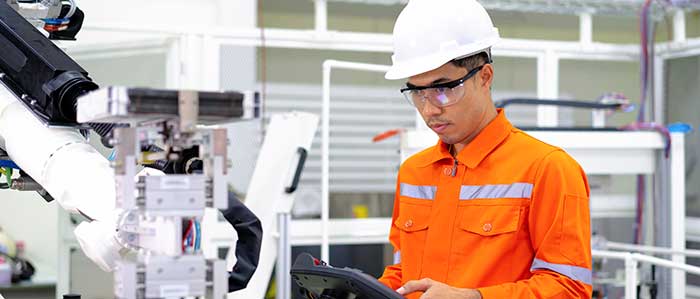
The “robot zombie apocalypse” is not upon us, but people need to prepare themselves to focus on the kinds of work that only humans can do in a time when automation is a part of so many jobs.
That’s one of the points I wanted to make on the Harvard Business School podcast Managing the Future of Work in a conversation with host Joe Fuller, professor of management practice.
It’s also a theme in my new book, “Human Work in the Age of Smart Machines,” in which I argue that we must focus on what really matters to us as humans, which is the ability to live a life of meaning and purpose, to find dignity in work, and to be able to contribute to a larger whole.
Certainly, there will be jobs lost to technology, but if we focus on our human traits and capabilities – the work that only humans can do – we’ll actually be better off in this age of smart machines.
Technology, artificial intelligence, and automation are taking over more of the tasks people used to do because they’re good at repetition, pattern, speed, and reducing things to an algorithm.
But machines can’t understand subtlety, nuance, and how people react to each other in unpredictable ways. That means society can take advantage of the capabilities of the machines, but also understand their limitations and refocus on the human traits and characteristics that allow us to be human workers.
In the podcast, we talked about what I view as the four kinds of human worker:
-The Helpers, who are engaged in occupations that involve deep personal interaction with other people. This could be therapists or people who work in customer service.
-The Bridgers, who are at the intersection between people and technical tasks and systems. Think of sales managers or people who work in certain technology fields where they are bridging between the help desk.
-The Creators, who work in a way that involves both highly technical skills and in purely creative ones, like game developers or choreographers. Human entertainment, humans wanting to be entertained by other humans, is going to grow in this human work era.
-The Integrators, who work in occupations that involve the integration of knowledge and skills from a range of fields, and then apply them in a personal way, like social workers and teachers.
These are going to be people who are social workers, teachers – perhaps the biggest category in the future because this interaction with others in a highly personal way is something technology cannot easily address.
An illustration of this idea might, for example, take place at a big pharmaceutical company working on a drug to treat diabetes. To understand the needs of doctors, patients, and the benefits of various therapies, team members might work for a month or more at a facility that treats diabetes patients, which enhances the empathy and compassion of team members for those whom the company serves.
Meanwhile, the importance of education has been made exceedingly clear during the COVID-19 pandemic. While 50% of those with bachelor’s degrees or higher have been working from home since the pandemic started, only about 10% of people with a high school credential or less have been able to. Black workers, especially, are more likely to work in essential occupations and in fields where job losses have been highest, like hospitality, and they also have higher death rates from COVID.
We’re still a long way from defeating the virus, but already we can tell this: COVID has impacted how we think about the work of the future, and about essential questions around racial justice and equity. I think these are permanent changes, and as much as we talk about “returning to normal,” we need to recognize: “Normal” wasn’t very good for many people. We can and must do better as we respond to the challenges of the present moment and the opportunities of the future.
Jamie Merisotis is president and CEO of Lumina Foundation. His new book, “Human Work in the Age of Smart Machines,” is available now.
